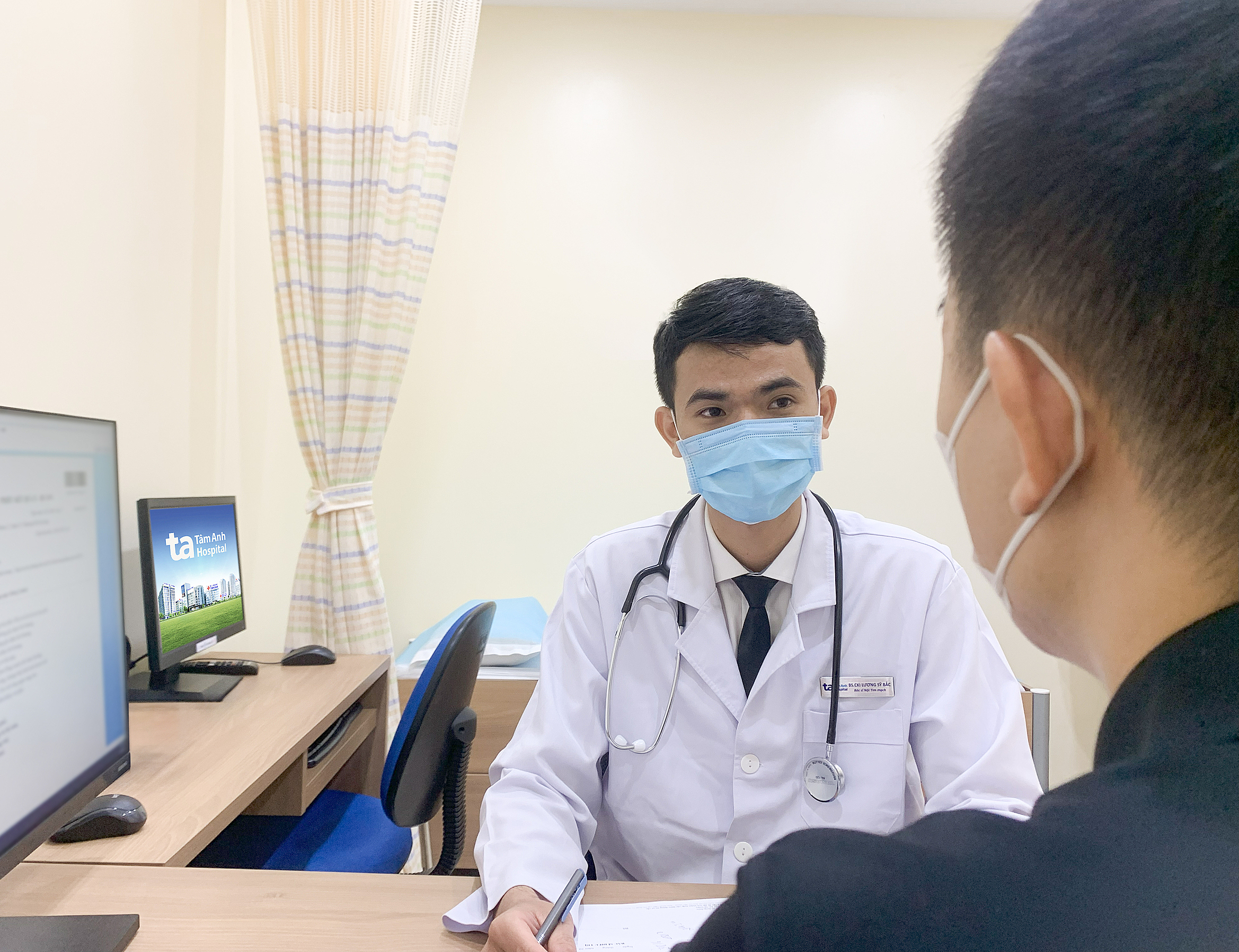Dr. Luong Si Bac, from the Cardiology Unit at Tam Anh General Clinic, District 7, reported that Mr. Hai had multiple blood clots obstructing the deep veins in his lower extremities. Over the past 10 years, recurring episodes have damaged his venous system, leading to post-thrombotic syndrome, causing swelling from his feet to his knees, and chronic pain. He also experienced cellulitis (inflammation of the skin and underlying tissue), causing infection and fever.
As a driver, Mr. Hai sits for extended periods, slowing blood circulation and creating conditions for blood clots to form in the veins. According to Dr. Bac, Mr. Hai's condition could be due to family history, a systemic or inherited immune disorder, or a protein synthesis disorder causing increased coagulation, given the recurrence of the condition and similar symptoms in his sister. Test results suggest Mr. Hai might have systemic lupus erythematosus. However, further antinuclear antibody (ANA) testing is needed to confirm the lupus diagnosis, as recommended by the American College of Rheumatology (ACR). ANA is a highly specific antibody found in autoimmune diseases. Based on these findings, doctors will prescribe specific immunosuppressants.
Mr. Hai has had two gastrointestinal bleeding episodes requiring gastrojejunostomy surgery due to poor adherence to anticoagulant medication schedules and dosages. Doctors prescribed a new-generation oral anticoagulant, eliminating the need for regular blood tests to assess effectiveness, but requiring long-term monitoring. This medication helps prevent recurrent thrombosis. He is undergoing medical treatment with a combination of pain relievers, vein-relaxing medication, and medical compression stockings to prevent blood pooling and reduce leg swelling, combined with physical therapy.
The patient is at high risk for pulmonary embolism, a dangerous complication where blood clots from deep veins travel to the lungs, blocking pulmonary arteries. Dr. Bac advised Mr. Hai to adhere to his medication schedule, attend follow-up appointments for disease management, and exercise regularly.
 |
Dr. Bac examines a patient at Tam Anh General Clinic, District 7. Photo illustration: Trung Doan |
Deep vein thrombosis (DVT) occurs when blood clots form and accumulate in one or more deep veins in the body, such as the calf, thigh, or pelvic area. These clots can partially or completely block blood flow back to the heart. When blood flow is obstructed, pressure in the veins increases, causing fluid to leak into surrounding tissues, leading to swelling. Causes of DVT include infection, injury, inflammation, or post-surgery conditions. Other factors such as older age, lack of physical activity, being overweight or obese, genetic abnormalities, autoimmune diseases, use of birth control pills, pregnancy, or the postpartum period can also increase the risk.
Typical symptoms of DVT include swelling, pain, redness and warmth in the affected leg or arm, and skin discoloration. Some cases may be asymptomatic or have mild symptoms, only detected when a clot travels to the lungs, causing a pulmonary embolism. This can lead to severe chest pain, shortness of breath, coughing up blood, dizziness, and fainting.
Dr. Bac recommends maintaining a healthy lifestyle, drinking enough water, limiting salt, sugar, and saturated fat intake, and increasing consumption of green vegetables, fruits, and omega-3-rich foods. Regular exercise, maintaining a healthy weight, and avoiding prolonged sitting are crucial for improving blood circulation and reducing the risk of thrombosis. Individuals with chronic joint conditions, obesity, high blood pressure, or a history of thrombosis should undergo screening and specialist consultations for early detection. If there are signs of leg swelling or pain, prompt medical attention is essential.
Ngoc Chau
*The patient's name has been changed
| Readers can submit questions about cardiovascular diseases here for doctor's answers |












